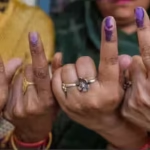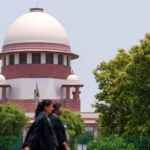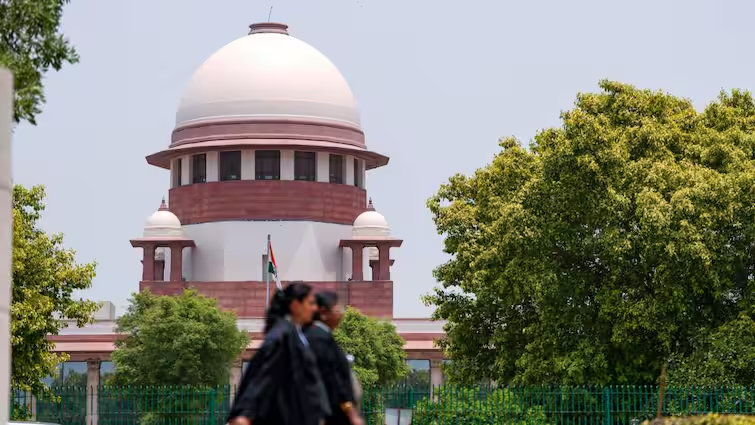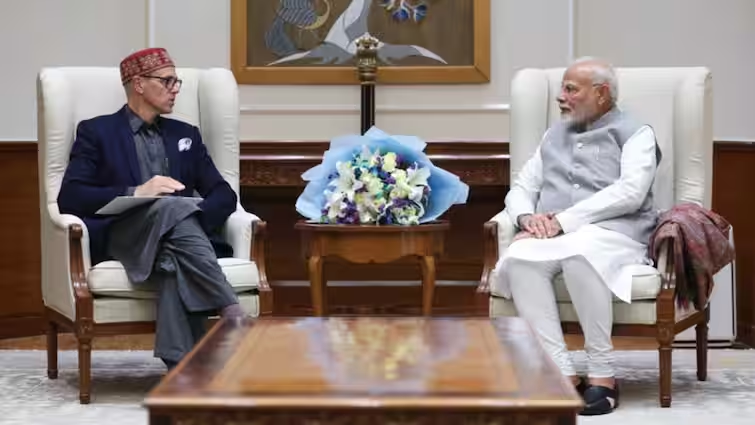Amid Global Market Crash, Congress Takes a Dig at Modi and Trump: “Both Experts in Economic Self-Harm”
As global financial markets reeled under heavy pressure following the United States’ decision to impose sweeping tariffs on several countries, political fireworks erupted in India. The Indian National Congress seized the moment to criticize both Prime Minister Narendra Modi and US President Donald Trump, linking their respective economic policies to the unfolding crisis in financial markets.
Congress MP and senior leader Jairam Ramesh took to social media platform X (formerly Twitter) to launch a scathing attack. Referring to Modi’s 2016 demonetisation decision and Trump’s recent tariffs, Ramesh stated, “It is no wonder that Mr. Modi and Mr. Trump describe themselves as good friends. Both are experts in giving their economies self-inflicted wounds.”
It is no wonder that Mr. Modi and Mr. Trump describe themselves as good friends.
Both are experts in giving their economies self-inflicted wounds.
Nov 8, 2016 was demonetisation.
April 2, 2025 was the bizarre reciprocal tariffs.
Markets are reacting predictably in a…
— Jairam Ramesh (@Jairam_Ramesh) April 7, 2025
The sharp comment came amid a major downturn in Asian markets. India’s benchmark indices—the BSE Sensex and NSE Nifty—opened to a bloodbath, plunging between 5 to 9 percent. The sudden collapse mirrored global trends, especially in emerging markets, which are feeling the heat from trade tensions and geopolitical uncertainty.
Ramesh, known for his acerbic wit, further added, “Markets are reacting predictably in a tariffying manner,” making a play on words to emphasize the chaos induced by protectionist trade moves.
Congress Criticism Intensifies
Congress spokesperson Supriya Shrinate echoed Ramesh’s concerns and painted a grim picture of investor sentiment. In a press briefing and on social media, she said, “The stock market is a sea of red. Investors are running for cover and panic is widespread. Instead of offering reassurance or laying out a contingency plan, the government remains blissfully silent.”
She also criticised the Modi government’s tendency to shift focus from pressing economic challenges to what she described as “symbolic and diversionary legislations.”
Shiv Sena (UBT) Joins the Chorus
The chorus of criticism was not limited to the Congress. Shiv Sena (UBT) MP Priyanka Chaturvedi launched a blistering attack on the BJP, accusing the government of apathy towards the economic implications of Trump’s tariffs. Taking to X, she sarcastically remarked, “The global markets are crashing. So is the Indian market. But India need not worry, after all, the government passed the Waqf Amendment bill in a marathon late-night session in Parliament on the day Trump tariffs were rolled out.”
Her statement drew attention to the perceived disconnect between global developments and the priorities set by the Indian government. “It did not even utter the word ‘tariff’ and its impact. Shut your eyes to reality and chant ‘sab changa si’,” she added, mocking a popular phrase used to downplay issues.
In a follow-up post, she doubled down on her criticism with another biting remark: “Okay hai. Bulldozer hi toh chal raha hai market par, Bhajapa ka favourite weapon.” (Translation: It’s fine. The bulldozer is rolling over the market—BJP’s favourite weapon.)
A Crash Rooted in Global Tensions
The backdrop to this political slugfest is a volatile global economic environment. Earlier this month, President Trump announced a fresh round of tariffs targeting major trading partners, including China, the European Union, and even traditional allies like Canada and Mexico. The move was justified under the pretext of protecting American industries, but economists worldwide have warned of its adverse ripple effects.
Markets have responded with trepidation. Investors are fleeing riskier assets and shifting towards gold and US treasuries. In India, foreign institutional investors (FIIs) have begun pulling out capital, further destabilizing the market.
Economic Policy Under Scrutiny
Analysts have pointed out that while external shocks like the US tariffs can trigger panic, domestic economic vulnerabilities amplify the damage. India, in particular, has been facing sluggish growth, persistent inflation, and an unemployment rate that remains stubbornly high.
The opposition has taken this opportunity to raise questions about the Modi government’s economic stewardship. According to Congress leaders, the scars of demonetisation, flawed implementation of the Goods and Services Tax (GST), and lack of timely economic reforms have weakened India’s resilience.
Ramesh’s jibe comparing demonetisation to Trump’s tariffs highlights a broader concern—policy unpredictability. Both decisions, critics argue, were taken with little stakeholder consultation and caused disproportionate disruption to ordinary citizens and small businesses.
Government Maintains Silence
As of Monday afternoon, there has been no official response from either the Prime Minister’s Office (PMO) or the Ministry of Finance. Finance Minister Nirmala Sitharaman was notably absent from media appearances, and there were no press releases addressing the market crash.
The absence of a communication strategy during financial turmoil has further fueled criticism. Political opponents argue that in moments of crisis, silence from the top leadership can worsen investor confidence.
What Lies Ahead?
Experts believe the market volatility could persist unless swift measures are taken to calm investor nerves. This includes clear communication from the government, policy stability, and international diplomacy to avoid a prolonged trade war.
In the meantime, political rhetoric is likely to intensify as parties position themselves ahead of key elections. The opposition has already signaled that economic mismanagement will be a central theme in its campaign narrative.
The current market crash has done more than shake financial indicators—it has reopened wounds from past policy decisions and sharpened the opposition’s narrative. As Congress and other opposition parties draw parallels between Modi and Trump, the debate on economic accountability is back at the center of Indian politics.
Whether the government chooses to engage with this criticism or continues to focus on legislative measures with polarising overtones remains to be seen. One thing, however, is clear: the markets are watching—and so are the voters.















